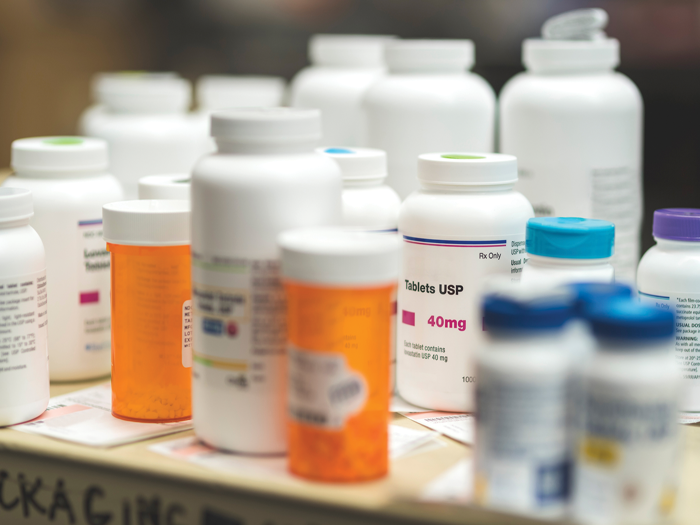Mitchell Analysis Shows Increased Opioid Abuse During COVID; Here’s What Else Is New for Pharmacy

COVID-19 has led to increased opioid abuse, medical marijuana legislation and drugs delivered by mail.
That’s all according to Dr. Mitch Freeman, who recently released 2020 in Hindsight: Clinical Trends and Predictions detailing the pandemic’s effect on the pharmacy industry.
Freeman is the chief clinical officer and vice president of Mitchell International Pharmacy Solutions.
Here’s what his analysis found:
Overdoses Increasing
Pandemic lockdowns are increasing stress and anxiety — harming mental health and well-being. In turn, people are turning to drugs.
The report cited the following statistics:
- 18% increase in suspected drug overdoses since the beginning of stay-at-home orders.
- 11% increase in drug fatalities in the first four months of 2020.
“We expect the numbers to increase as the pandemic stretches on,” the report said.
In response, employers should be increasingly aware of the dangers of opioid prescriptions in workers’ compensation and general health care.
“Continue to monitor your pharmacy program with your PBM to identify early opioid use, identify physicians who may be unintentionally overprescribing, monitor claim MED escalation and evaluate any out-of-network dispensing. Also, make sure to check in on long-term opioid patients dealing with stress and isolation, as these can be catalysts for increased drug use and abuse,” the report said.
Mail Orders Are Up
Consumers seem to be ordering everything via delivery during the pandemic — from pet food to makeup to household products. Just peek at the packages on your neighbor’s front porch (and Amazon’s stock price) for evidence.
Pharmaceutical drugs were no different as high-risk populations didn’t want to risk getting sick at a physical store.
“Just like ordering groceries online, shifting to receiving prescriptions through mail order provided a safer option for many patients throughout the pandemic,” the report said.
Medical Marijuana Sales Increased and It’s Emerging as an Opioid Alternative
Medical marijuana sales are up during the pandemic “as many states deemed dispensaries essential businesses and people turned to the drug as a coping mechanism,” the report stated.
The steady gains of marijuana could have a profound effect on the pharmacy industry and workers’ comp — as marijuana is increasingly used as an opioid substitute.
The report cited multiple studies…but research is still relatively inconclusive about the long-term impacts of legalized marijuana on opioid use, opioid withdrawal and the treatment of pain.
Access to Drugs Wasn’t a Factor
There was concern at the outset of the pandemic that prescription drugs may not be widely available.
But those concerns turned out to be unfounded as pharmacies were deemed essential businesses and supplies remained high.
“To date, overall impacts have been less dramatic than first feared,” according to the report.
Advice for Employers
The report offered some practical advice for companies running pharmacy programs.
- Monitor trends as the pandemic continues.
- Employ strategies with your PBM to control inappropriate prescribing, intervene with over-prescribers, and move care to in-network pharmacies.
- Encourage physicians to fill prescriptions at in-network pharmacies.
Further Reading
Interested in helping workers cope with the stress and anxiety of the pandemic? Check out these five mental health tips from Terri L. Rhodes, CEO of the Disability Management Employer Coalition.
Curious about the link between mental health and physical health — and why it’s crucial to workers comp? Read this article examining the connection and pharmacy’s important role in the process.
Ready for a deep dive into the healthcare and pharmacy trends resulting from the pandemic? Check out this white paper from Healthesystems, a PBM and ancillary benefits management provider. &










